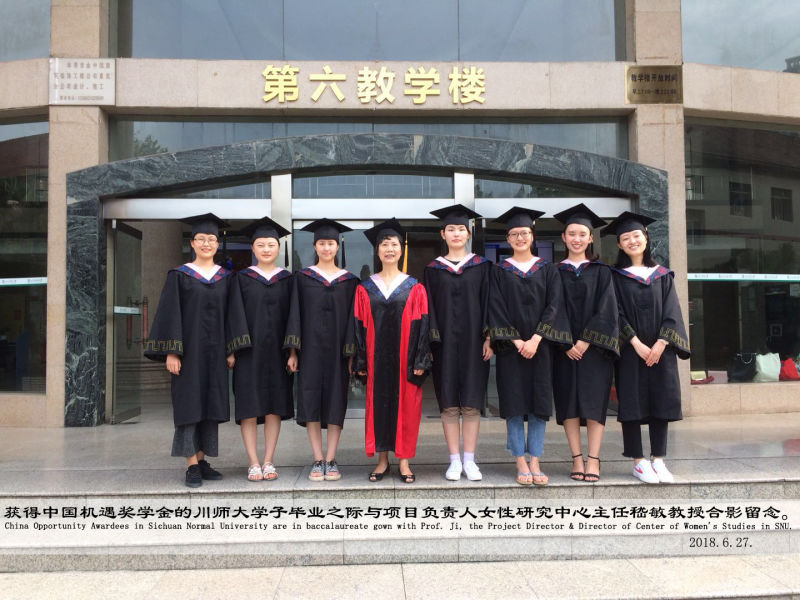For Chinese scholarships, age criteria vary; typically, 18-25 for bachelor’s, 35 for master’s, and 40 for PhD.
Table of Contents

Types of Chinese Scholarships
Government Scholarships
Chinese Government Scholarship (CSC) The Chinese Government Scholarship (CSC) is perhaps the most well-known scholarship offered by the Chinese government. Covering a wide range of fields and disciplines, the scholarship typically covers tuition fees, a monthly stipend, accommodation, and medical insurance. Applicants must be under the age of 35 for master’s programs and 40 for doctoral programs.
Confucius Institute Scholarship Another significant initiative is the Confucius Institute Scholarship. Primarily catering to students of Chinese language and culture, the scholarship covers tuition, accommodation, and a monthly stipend. Age limit varies based on the type of program, but for general language study, the age limit is typically set at 35.
University Scholarships
Tsinghua University Scholarship One of the most prestigious institutions in China, Tsinghua University offers its own set of scholarships for international students. Benefits include a full or partial waiver on tuition fees and sometimes a monthly stipend. The age limit for master’s candidates is usually 35 and 40 for doctoral candidates.
Peking University Scholarship Another iconic institution, Peking University, provides scholarships covering 50-100% of tuition fees. Depending on the program, the scholarship might also include a monthly stipend. Age criteria vary based on the course, but generally, master’s applicants need to be under 35 and doctoral applicants under 40.
Private and Corporate Scholarships
Alibaba Group Scholarship The tech giant Alibaba occasionally offers scholarships for students in fields like technology, e-commerce, and business management. These scholarships might cover tuition fees and provide a monthly stipend of around $500. There’s typically no stringent age limit, but preference is often given to those under 30 due to the fast-paced nature of tech industries.
Tencent Future Leaders Scholarship Tencent, another massive name in the tech world, offers the “Future Leaders” scholarship for budding tech professionals and leaders. With benefits including full tuition coverage and a monthly stipend of about $600, applicants usually need to showcase exceptional promise in their field. While age isn’t a primary criterion, younger candidates with demonstrable achievements often have an edge.
Age Requirements for Different Scholarships
Age Criteria for Bachelor’s Scholarships
Most bachelor’s scholarships offered in China for international students have an age bracket that typically starts from 18, as this is the general age of high school graduation. The upper age limit often sits around 25. For example:
- Beijing Normal University International Students Scholarship: Available for undergraduate programs with the age criteria of 18-25.
- Shanghai Jiao Tong University Scholarship: For undergraduate admissions, the age bracket is 18-23.
Exceptions do exist, and in certain circumstances, scholarships might be provided to slightly older candidates who have taken gap years or have other valid reasons for their application at an older age.
Age Criteria for Master’s Scholarships
For master’s scholarships, the age bracket typically starts post-bachelor’s, around 22 or 23. The upper age limit generally hovers between 35-40. Some examples include:
- Fudan University International Student Scholarship: This scholarship requires master’s program applicants to be under the age of 35.
- Zhejiang University Master’s Scholarship: They have an age limit of 30 for most of their master’s programs.
However, specific programs or fields of study might have more relaxed or stringent age criteria, so always checking the particular program is essential.
Age Criteria for Doctoral Scholarships
Doctoral scholarships in China usually expect candidates to start applying soon after completing their master’s, which means the age bracket often begins around 25-28. The upper age limit for these scholarships typically ranges from 40-45. For instance:
- Tsinghua University Doctoral Scholarships: Most of their PhD programs require candidates to be under 40 at the time of application.
- Peking University PhD Scholarships: Their criteria often set the age limit at 45, especially for fields that require extensive research or prior work experience.
Scholarships for Senior Scholars and Professionals
For senior scholars and professionals who wish to undertake research or pursue further studies in China, age becomes a more flexible criterion. Often, the emphasis shifts from age to the quality of work, research, or expertise one brings to the table. Some notable scholarships include:
- Chinese Academy of Sciences Fellowships: These are primarily for researchers and professionals. While age isn’t a strict criterion, the emphasis is on the applicant’s research quality and potential contribution.
- Huawei Technologies Scholarships: Offered to professionals in the tech industry, these scholarships focus more on expertise and experience rather than age.

Reasons Behind Age Restrictions
Socio-cultural Perspectives
In many cultures, age symbolizes wisdom, but it can also signify traditionalism. In an academic setting, younger students are often perceived as more adaptable and moldable. From a socio-cultural perspective, younger international students might find it easier to integrate into Chinese society, adjust to the education system, and adapt to a new lifestyle. Universities might prefer younger candidates because:
- They often believe younger individuals can more easily adapt to new cultural surroundings.
- The probability of younger students participating in extracurricular activities and community integration is relatively higher.
Academic and Professional Considerations
From an academic standpoint, younger students might be perceived as having fresher foundational knowledge, making it easier to build upon that foundation at the tertiary level. Additionally, the probability of them having recent academic experience is high, suggesting they might be more attuned to academic rigor and demands.
On the professional front, younger students, once graduated, have a longer potential working life ahead. This makes them appealing candidates for sectors with significant investment in training and development, hoping for longer returns on their investment.
For instance, in the tech industry, where rapid advancements are the norm, younger graduates might be perceived to be more updated with the latest technologies and more adaptable to evolving innovations.
Exceptions and Flexibilities
Cases where Age is Not a Factor
While age restrictions apply to many scholarships, there are cases where age doesn’t play a significant role:
- Research Fellowships: Many research-based scholarships and fellowships, like the ones offered by the Chinese Academy of Sciences, focus on the quality of the candidate’s research proposal rather than age.
- Short Courses & Workshops: Many scholarships for short courses, workshops, or seminars don’t have stringent age criteria, as they focus more on skill acquisition and knowledge sharing.
Scholarships for Special Groups or Situations
There are also scholarships tailor-made for specific groups where age criteria are more relaxed:
- Scholarships for Displaced Individuals: Certain scholarships cater to refugees or individuals displaced due to political unrest or natural calamities. For these scholarships, the age limit is often relaxed, understanding the exceptional circumstances faced by the applicants.
- Senior Scholar Grants: These are designed for experienced professionals or scholars looking to contribute or learn from Chinese academic and professional landscapes. The emphasis is on expertise, research, or contributions rather than age.

How to Apply for a Chinese Scholarship
Preparing Necessary Documents
Starting with a structured approach is key to a successful application. Here’s a roadmap for getting your documents in order:
- Academic Transcripts and Certificates: Ensure you have both your original and copies of academic records, such as high school, bachelor’s, or master’s diplomas and transcripts.
- Recommendation Letters: Most universities and scholarship programs require at least two letters of recommendation. It’s crucial to get these from relevant academics or professionals who know you well and can vouch for your skills and character.
- Statement of Purpose or Research Proposal: This document outlines why you are applying, what you hope to achieve during your studies, and how the scholarship will assist you in your academic and career pursuits.
- Language Proficiency Proof: Depending on the course and university, you might need to provide proof of English or Chinese language proficiency through tests like IELTS, TOEFL, or HSK.
- Medical Examination Report: A health check-up might be mandatory. This usually includes general medical tests, and you might need to do it from a list of approved medical centers.
- Passport & Photographs: Ensure your passport is valid for the entire duration of your study. Also, keep a set of passport-sized photographs as per the specifications provided.
Age Verification and Authenticity
Age plays a significant role in scholarship eligibility. It’s imperative to provide accurate documentation:
- Birth Certificate: This primary document serves as an official testimony to your age.
- Passport: The date of birth on your passport should align with other documents. Discrepancies can lead to delays or disqualification.
Remember, authenticity is paramount. Submitting fraudulent or altered documents can lead not just to disqualification from the scholarship but also legal consequences.
Tips for Older Applicants
While age restrictions apply to several scholarships, being an older applicant doesn’t mean you’re out of options:
- Highlight Experience: Use your age to your advantage. Your years might bring along valuable work experience, unique perspectives, or specialized skills that younger candidates might not possess.
- Research Widely: Some scholarships or universities have a more flexible age criterion. Spend time researching these options.
- Networking: Connect with alumni or current students through platforms like LinkedIn to gain insights into the application process and how to make your age a strength rather than a limitation.
- Consider Non-traditional Programs: Look into programs or scholarships explicitly designed for senior scholars, professionals, or non-traditional students.

